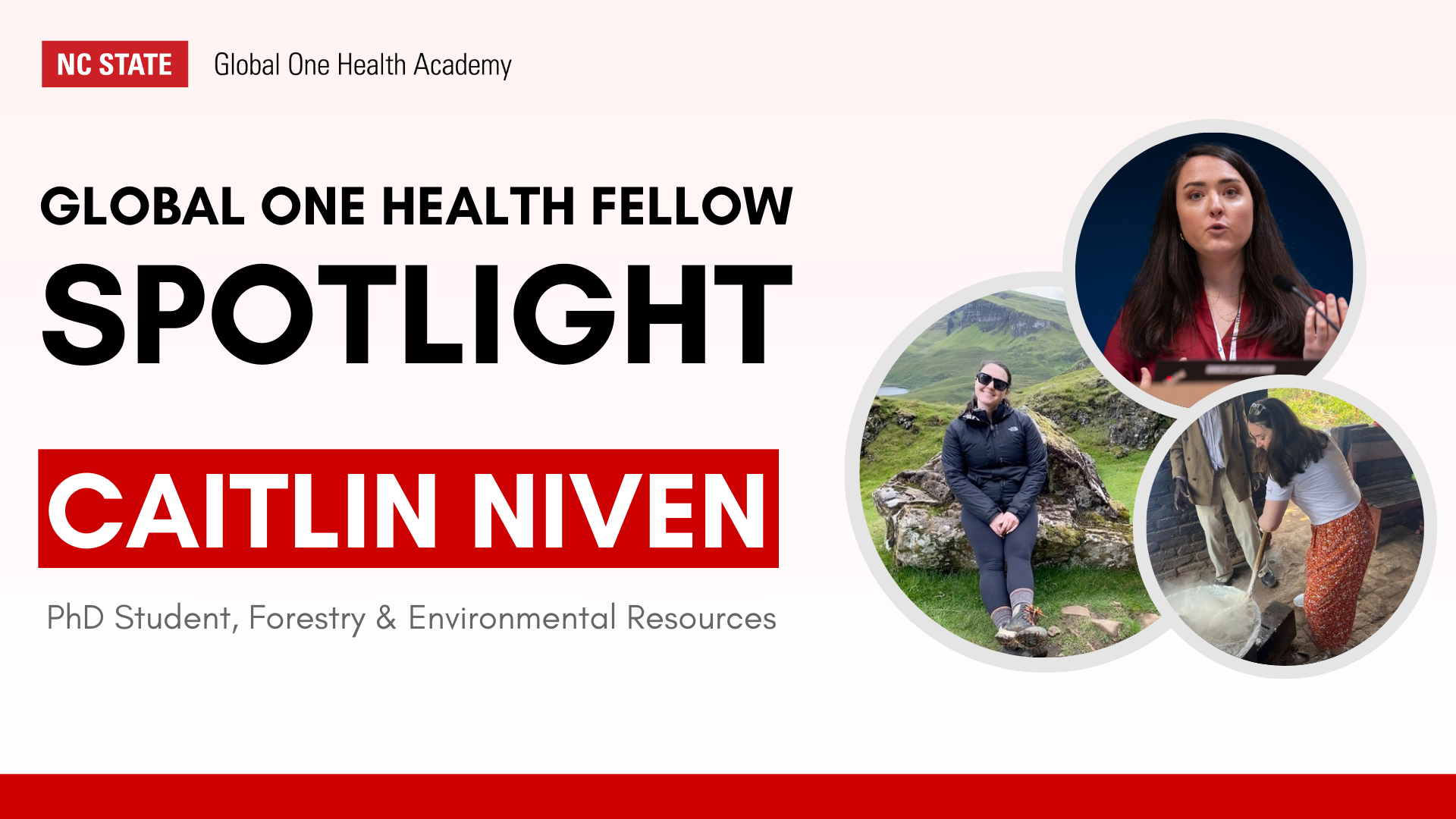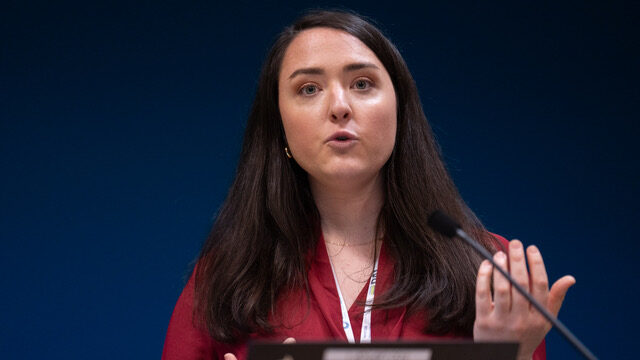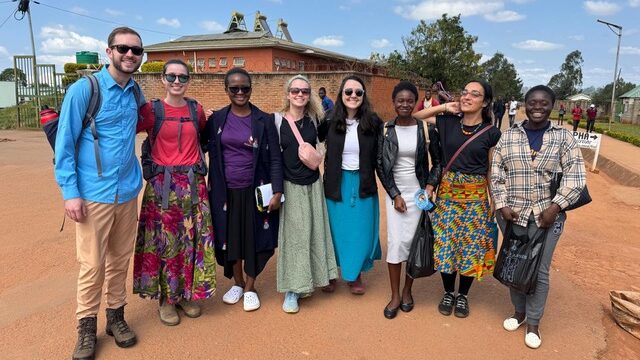Global One Health Fellow Spotlight – Caitlin Niven

Each year, the Global One Health Academy funds an exceptional group of graduate students with One Health related research interests. During their one-year appointment, the Global One Health Fellows are offered many opportunities, such as professional development workshops, networking with One Health professionals and more! Caitlin Niven was a member of our first cohort of fellows and was just recently in Malawi working on a study on antibiotic resistance. Learn more about Caitlin in her spotlight below!
What do you research?
I study the spread of fecal contamination in the environment, specifically looking at the spread of E. coli transmission through different environmental compartments in rural Bangladesh. We look at samples of stored water, soil, food, ambient water, captured flies, as well as mother and child hand rinses to compare levels of contamination. We then geographically match these samples with historical weather data to determine if weather, and ultimately climate change, may play a role in the spread of these pathogens.
What are the implications of your research, and how does it fit into the One Health framework?
Pathogens are not confined to one isolated environment. Instead, they can spread to water and soil, thus affecting environmental health which has downstream implications for food sources along with human and animal health. It is important to get a comprehensive picture of what is going on around you, not just for human health but also environmental and animal health. Looking at the influence of climate change will give us a better snapshot of what transmission pathways we need to look at and further interrupt to prevent the spread of pathogens. Flooding, heat waves, extreme rainfall, and drought are just some of the ways that climate change can impact pathogen survival. We don’t know what exactly will happen in the future, but using available historical weather data, we can make some valid predictions for future water, sanitation, and hygiene interventions.

What/who inspired you to pursue this field of study?
My undergraduate research advisor was very dedicated to environmental engineering, and he found a way to make it fun! Through him I realized that everything is interconnected. As an undergraduate, I worked on parasite research where I realized that everything from the micro to the macro scale is important to consider in One Health. My current advisor, Ayse Ercumen, Ph.D. has played a really pivotal role in my continued interest in this work. She is doing a lot of exciting work both domestically and abroad, and she is overall a really positive influence!
What do you view as a critical global challenge in One Health, and how could your discipline contribute to addressing it?
Recently a lot of research has come out studying antibiotic resistance and its long-term implications. I was just recently working on a study in Malawi where we were testing for antibiotic resistance in different environmental compartments. It is important to understand how these pharmaceuticals are being used, where they end up in the environment and how they can influence natural, microbiological communities. By collaborating with researchers from different disciplines, we can help curate a comprehensive, One Health solution to this pressing issue.
How has the Global One Health Fellowship helped shape your career trajectory?
The Global One Health Fellowship helped me to see that I don’t have to be pigeonholed to a specific discipline after graduating with a Ph.D. There are so many opportunities for research in the One Health space that I wasn’t even aware of before becoming a fellow.
What was your favorite part of the Global One Health Fellowship?
I honestly really loved class! My cohort and I had some really interesting conversations about each other’s research and emerging issues in the global One Health space. I really enjoyed that, and having faculty members contribute to that conversation made it a very enriching experience.
What are your next steps?
I will continue working on my research with the goal to graduate in the spring of 2025. Upon graduation, I hope to pursue a career in environmental epidemiology and continue similar work to what I am doing right now, perhaps abroad and on a local scale. I also want to continue presenting this research at conferences, disseminating my findings, and growing more connections and partnerships with other researchers in this field.
Is there anything else you would like to share?
I have interacted with some of the new cohort of Global One Health Fellows and I was actually just abroad with one of the students on a NSF funded research project in Malawi. I am very excited to see what the next cohort of fellows has to offer. I know that they are going to do really great things!



